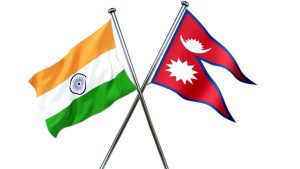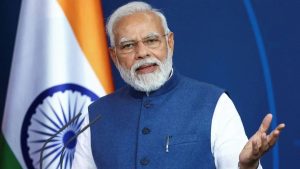
Trump Plans New Tariffs, Sparking Global Trade Concerns
US President Donald Trump said Monday he would be “very kind” to trading partners when unveiling further tariffs this week, despite concerns of global economic turmoil. He insists that “reciprocal tariffs” are necessary to address what he claims are unfair trade imbalances.
Trump, who has used presidential powers in unprecedented ways since taking office, said he could announce the tariffs as early as Tuesday night. He argues that the US has been “ripped off by every country in the world” and has promised a “Liberation Day” for American trade.
Despite this aggressive stance, Trump reassured reporters, saying, “We’re going to be very nice, relatively speaking, we’re going to be very kind.” However, critics warn that his strategy could spark a global trade war, prompting retaliation from key partners such as China, Canada, and the European Union.
Already, China, South Korea, and Japan have agreed to strengthen free trade among themselves in response to US actions. However, Trump dismissed concerns that his tariffs would push allies toward Beijing, even suggesting that a deal on TikTok could be linked to China tariffs.
White House Press Secretary Karoline Leavitt said the administration plans to announce “country-based tariffs” on Wednesday, though Trump remains committed to imposing sector-specific charges as well. The uncertainty has rattled markets, with key European and Asian indexes closing lower, although the Dow and S&P 500 saw slight gains.
Market nervousness intensified after Trump stated Sunday that his tariffs would affect “all countries.” The Wall Street Journal reported that advisers have considered imposing global tariffs of up to 20 percent, potentially affecting nearly all US trading partners. Trump, however, insisted his measures would be “far more generous” than the tariffs currently imposed on US goods.
Trump’s focus on tariffs has heightened fears of a US recession. Goldman Sachs analysts raised their 12-month recession probability from 20 percent to 35 percent, citing a lower growth forecast, declining confidence, and White House statements indicating a willingness to endure “economic pain.”
Meanwhile, trading partners have begun retaliating. China and Canada have imposed counter-tariffs on US goods, while the EU plans to introduce its own measures by mid-April. Vietnam has cut import duties on cars, liquefied gas, and agricultural products, while Japan has announced it will establish 1,000 “consultation centers” to assist businesses affected by US tariffs.
IMF chief Kristalina Georgieva said at a Reuters event Monday that Trump’s tariffs are causing anxiety, although their overall global economic impact should not be dramatic. Ryan Sweet of Oxford Economics warned to “expect the unexpected,” anticipating that Trump would “take aim at some of the largest offenders.”
In addition to country-based tariffs, Trump may introduce further sector-specific levies on pharmaceuticals and semiconductors. He has already announced auto tariffs set to take effect Thursday. Economists believe the upcoming measures could target the 15 percent of trading partners with persistent US trade imbalances, a group labeled the “Dirty 15” by US Treasury Secretary Scott Bessent.
The US has some of its largest trade deficits with China, the EU, Mexico, Vietnam, Taiwan, Japan, South Korea, Canada, and India. Many of these nations are now working to minimize their exposure, with reports suggesting that India may lower certain duties in response.
European Central Bank President Christine Lagarde urged Europe to move toward economic independence, calling this an “existential moment” for the continent. Meanwhile, UK Prime Minister Keir Starmer and Trump discussed “productive negotiations” on a potential UK-US trade deal, while German Chancellor Olaf Scholz signaled that the EU would respond firmly but remained open to compromise.













Comments